The ultimate recyclers: making new PCs from old
Inside the Free Geek non-profit hardware emporium
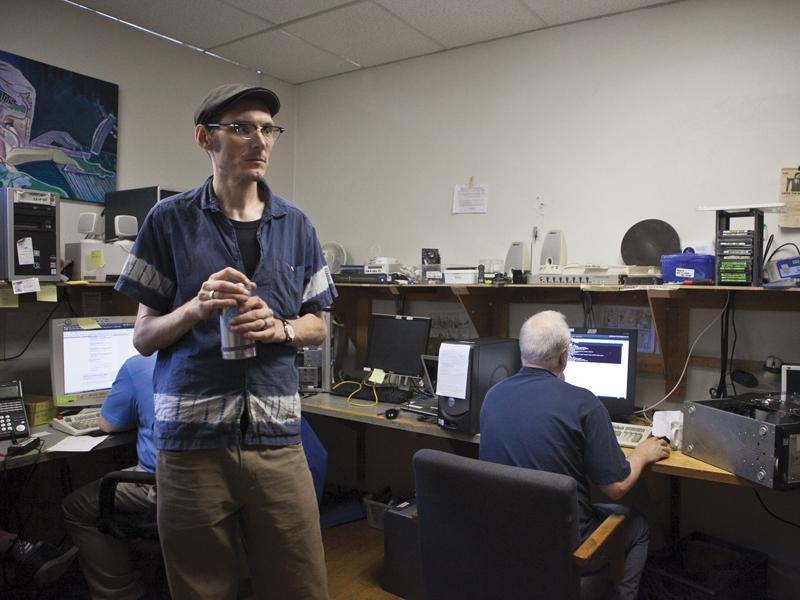
Several years ago, on one of our trips to Portland, in the North West of the United States, we heard about a local non-profit that recycled old hardware by taking it to pieces, saving the valuable parts and then building new machines from the good bits and Ubuntu.
They were then either given away or sold through the thrift store to raise money for the organisation – and the majority of people who did the work were volunteers. They were trained at each step, including in installing and using Ubuntu, and when they'd donated a set number of hours, they could take a machine home with them.
This place was called Free Geek, and when we returned to Portland last summer for OSCON, we were able to arrange a tour of their facilities to discover exactly how this Linuxcentric recycling plant had become so successful.
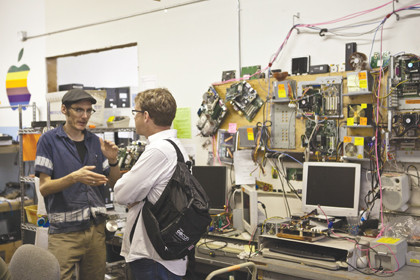
Free Geek first opened its doors in September 2000, and its philosophy has always been simple: "Computers help us in many ways, but two problems remain – obsolete computers create thousands of tonnes of waste each year, yet many lack the resources to own a computer."
Starting with just three members of staff, the team embarked on a voyage to educate the citizens of Portland, while at the same time putting old hardware to good use. And in the decade that has passed since that moment, Free Geek has never looked back. It has grown into its own large premises, with local recycling contracts and a large team of volunteers, all managed transparently by the community-developed regulations. It helps people learn new skills and it re-animated old hardware.
To think that an enterprise can flourish like this in a city with a population of 2.25 million inhabitants is remarkable.
Power to the people
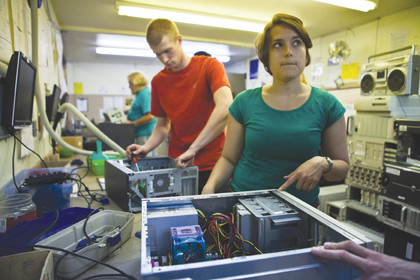
Its most important asset is its people. There is a group of full-time, paid staff who ensure everything doesn't fall apart, but it's the legion of volunteers that makes Free Geek work as effectively as it does.
Get daily insight, inspiration and deals in your inbox
Sign up for breaking news, reviews, opinion, top tech deals, and more.
They handle everything, from the PCs coming into the warehouse to the store that sells some of the hardware on. If they give enough hours, which can be as little as 24, or a certain number of boxes are built, they can walk away with their own machine.
Free Geek told us how many people make the enterprise work: "We have approximately 32 total staff members, half of whom are full-time. We average about 500 unique volunteers per month. Demand for hardware is somewhat harder to measure; fewer people seem to be taking home desktop computers, although there is still demand in that area."
And after 11 years, the numbers of hours Free Geeks put into their work is astounding. Volunteers have spent 212,254 hours on the adoption programme, 226,761 hours on the build programme, there have been 13,560 hours from internships, 46,540 hours in testing, 30,147 hours in education and 9, 166 hours in the E-Waste division.
The time they donate is important, but for the volunteers they get a whole new set of skills, because computer knowledge is never a prerequisite. As such, Free Geek is the perfect environment to take people from a state of technophobia to a position of skilled experience, because we can't think of any other way of getting this close to such a wide array of hardware.
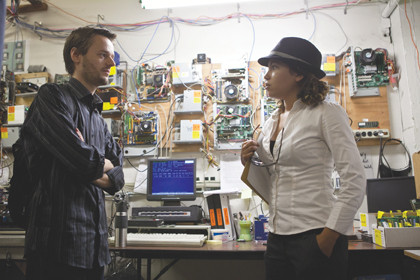
And if you want to take the role even more seriously, Free Geek also runs internships that can help any candidate progress to wider IT roles without any formal qualifications. All of this, and its management, is done in the open; and many of the processes are well documented on Free Geek's wiki.
"They've all been developed over the years by the collective," they told us. "We try hard to build lasting policies that will function well in the day-to-day, and review them whenever necessary." It's this openness that puts Free Geek in the same category as the Fedora project.
"Transparency is an important aspect of our business. All minutes from meetings are posted to our minutes list, and meetings are open unless an executive session is called. We recently restructured our board to include two volunteer representative positions, and added a list for discussion of board issues. Consensus is reached by whatever means possible; a proposal is made, feedback is solicited from other staff members, and then a decisionmaking process is followed to highlight concerns and address them if possible."
Geeks R Us
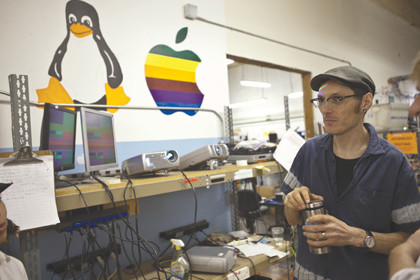
But the first thing you can't fail to notice when you visit Free Geek is just how much activity it's responsible for. Even outside on the sidewalk, sorry pavement, you get a sense of how busy things must be inside.
Vans are constantly dropping off old equipment while people park up to visit the thrift store bolted into the front quadrant of the warehouse space. And the warehouse is pretty big, especially for a service such as this, as it takes up more than a third of a block. There's room to accommodate all the equipment at its various stages of dissassembley and re-assembly, as well as the offices, classrooms, lock-ups and storerooms, and production lines hidden within.
Entering the building leaves you feeling a little overwhelmed. There are three entrances, if you include the door for the thrift store. The other two are for visitors and the receiving of hardware. The latter is positioned at the beginning of an immense production line that snakes its way through the various departments of the Free Geek enterprise.
There's a printer store, for example, which deals with everything printery, and even a Mac build centre to take the growing number of shiny aluminium, white plastic and angle-poise hardware that's being dropped off as people fall into their next upgrade cycle.
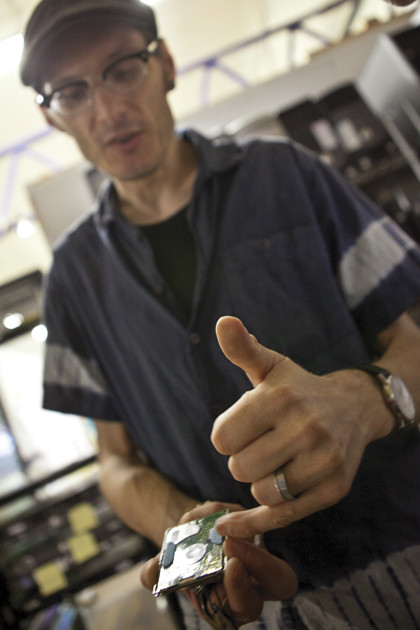
But for most hardware, and that means PC cases, the first stage is one of evaluation. Old cases are torn apart and the hardware components they hide identified. Anything that can be saved is sorted into piles for other machines. This includes network and graphics cards, memory, power supplies, cases, CPUs and storage.
- 1
- 2
Current page: We are Free Geek: ultimate PC recyclers
Next Page We are Free Geek: recycling in numbers